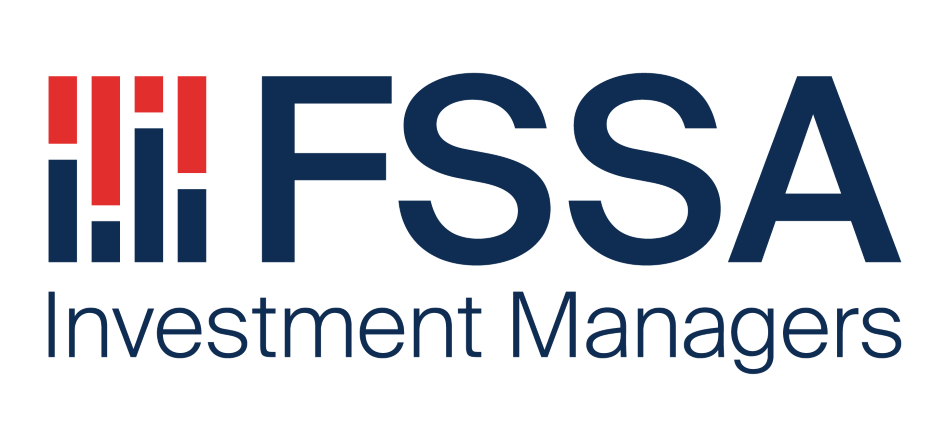Showing 1 to 40 of 40 results.
For several decades the world has looked to the US for stability and order. Following the ‘surprise’ election result that had the prevailing politicians and pollsters aghast at hearing the words, ‘President-elect Trump’, gives a sense that the stability we have come to expect from the US can no longer be assured.
If the BoJ continues to buy bonds at its current pace, the Central Bank will own the entire market by 2025. With negative rates and a dysfunctional bond market, where are Japanese investors turning to offshore now?
After a very slow start to its monetary policy normalisation process, with only one rate hike in both 2015 and 2016, the US Federal Reserve (the Fed) today entered a new, more active phase for monetary policy.
In today's economic research note, we break down the headline budget numbers, summarise key policy initiatives and explore their implications for key asset classes.
Experts agree that climate change and global warming pose systemic risks to the world economy, with major impacts on the availability of resources, the price and structure of the energy market, the vulnerability of infrastructure and the valuation of companies. But from a macroeconomic level, little has been done.
More data has been created in past 2 years than in the entire previous history of the human race. Technologies like apps, are underpinned and supported by data centres, which present a compelling investment opportunity for equities investors.
One of the most significant developments in global bond markets in recent years has been the collapse in term premium.The fact that the term premium is currently negative in Australia, and showing very little sign of heading substantially higher, is likely related to..
With Brexit and Trump fresh in the memory, financial markets were looking for the next domino to fall...
By 2030, Millennials will represent the largest source of income and consumer spending, earning two out of every three dollars in Australia. There are implications for the investment industry.
In recent years we have been hearing a great deal about digital ‘disruption” and how it has been re-shaping the global economy and the society we live in. But are we focusing too much on the digital drivers and not enough on other areas of disruption across the economy?
With the unemployment rate at 4.4% (ie. lower that the Fed’s long-run estimate) and most measures of the labour market on an improving trend the Fed is likely to remain committed to returning monetary policy to a more ‘normal’ setting and won’t be derailed by two months of softer inflation.
If “they” are right, then there is virtually never a bad time to be fully invested. The term "volatility” has become a euphemism. What people mean when they say, “markets have experienced some volatility” is that markets have gone down. You never hear a financial commentator bang on about those pesky volatile stocks that are up every single day and breaking new highs.
French consumer confidence has reached a 10 year high following the election. The question will now be, can it be sustained and can President Macron follow through on his promises?
In this economic research note, we look at the Fed's next steps, examine the central banks' revised economic forecasts and look at the financial market implications of today's hike.
Recent high frequency economic data in China is showing good momentum - and with growth of 6.9% in H1 17, the Chinese economy is clearly on track to outperform the ‘at least 6.5%’ economic growth target for 2017.
The performance of the Australian economy over 2017 to date can best be described as mediocre. The end of the mining investment downturn is near, the consumer environment is challenging while there are ongoing concerns around a build-up of risks in the housing sector.
With robots and AI getting better and better at these specific tasks it seems natural to ask, when will they replace human workers? According to 352 AI experts there could be a significant change in many areas...
One of the biggest economic mysteries since the end of the GFC has been the lack of wages growth globally, perplexing policy makers for whom it has become a key indicator of monetary policy. We may need more than low unemployment to generate wages growth or inflation and given growing inequality globally, it might be time for governments to step up with alternative policies.
When Australia posted its GDP growth results in the first quarter of 2017, the numbers told two stories. Growth was on one hand, the slowest posted since the GFC-induced slowdown in 2009. It also saw the nation overtake the Netherlands as having the longest uninterrupted period of economic growth of a major nation. The headlines hid a second story...
Much has been made of the Australian dollar’s (AUD) recent rally against the US dollar (USD). After spending much of 2016 and the first-half of 2017 averaging around $US0.75, the rally in the AUD to closer to $US0.80 in late June and early July has led the market to the question; what does a higher AUD mean for monetary policy and the broader economy?
Given the packed legislative agenda, and previous issues passing legislation around the debt ceiling, are there some downside risks that markets are ignoring?
After an extended period where inflation expectations in Australian financial markets have been declining, the evidence is mounting that this trend may have run its course. The most recent example of this is last week’s new ten year inflation linked bond issue from the Australian Government, where around A$5 billion of interest was expressed for a A$3 billion transaction.
Benchmark Relative. Absolute Return. Total Return? Global unconstrained? Here our global fixed income team demystify some of the common language used to describe approaches to fixed income investing – explaining the differences – and how they can be applied to various objective-based strategies within a broader portfolio.
As the saying goes, “There are two kinds of forecasters: those who don't know, and those who don't know they don't know.” Recently, we have seen hordes of the latter kind, garbed as analysts, Unicorn founders, freshly-minted CEOs and so-called “experts”, as they engage in modern-day snake oil salesmanship, which is what seems to pass for Fundamental Equity Research these days. The difference between making forecasts and predictions is the difference between a rational investor and a soothsayer. Today, there are a number of companies and analysts who desperately pretend that a different set of rules apply to them. To that end, they have even invented a new jargon-littered language that has been enthusiastically adopted by the investing community. Some of the words and phrases being used (and over-used) these days make us wince. Let’s look at a few.
Our unlisted infrastructure team invest in Brisbane Airport because they are a market-leader in sustainable operations – an approach which is increasingly critical to the long-term growth of an asset’s value. Here we explain how some small sustainable changes can add up for an asset’s valuation.
There’s a reasonable chance of achieving your investment objective over the long term by sticking to the plan. Not so fast! Here's why it's time to review your approach to asset allocation with volatile times ahead.
As Australians mull over the concept of good vs bad debt and the various policy announcements in the lead up to next week’s Commonwealth Budget, it is important to remember the revenue line.
Unlike the US and UK self-storage markets, the Australian self-storage is not institutionalised. Yields and capitalisation rates are higher in Australia. Given the stability of the cash flows, the localised nature of the assets and the high barriers to entry for development, the mispricing of the Australian self-storage market is material offering compelling risk adjusted returns for investors.
Following the downturn of the last 5 years, our 20 years of experience in resources investing leads us to believe the sector is positioned for a brighter 2017. Why?
Recently many investors and market participants have been perplexed as the VIX and volatility in general have decreased – even given the backdrop of rising political uncertainty and geopolitical risk. Here we analyse the factors currently keeping volatility low and use history to explore why the VIX may not be the best measure of risk and uncertainty.
Thursday, 1 October 2020: Leading global investment manager, First Sentier Investors, today announced it has pledged its support for industry super fund HESTA’s 40:40 Vision to increase the proportion of women in senior leadership across Australia’s largest listed companies to at least 40% by 2030.
Technology has changed the world, but investment history is littered with the likes of Blackberry and Geocities. The balance between realism and evangelism lies in the combination of valuation and earnings. Find out whether the valuations of Facebook and Adobe are supported...
Emerging markets are usually seen as a risky asset class. Recent headlines of protests, currency devaluations and governance blow-ups have done little to dispel these impressions.
2018 was a challenging year for Japanese equities. While we usually prefer to talk about the companies we own rather than comment on the market or the economy, it was interesting to note that 85% of trades last year was on auto-pilot, controlled by machines, CTAs and quant funds.
The emerging markets asset class is extremely varied. It includes democracies and dictatorships, economies reliant on manufacturing and those that export commodities, and – most importantly – some of the very best companies in the world alongside some of the very worst. If the last ten years investing in emerging markets has taught us anything it is that in the long run, quality wins.
First Sentier’s Dushko Bajic explains why fundamentals still matter, and shares two stocks with massive potential.
The listed infrastructure sector in North America contains many world leading assets, operated by world class companies - and it's growing - with over US$50 billion in assets being added to the asset class.
In September 2023, I met more than 30 global listed infrastructure companies and stakeholders from the UK, Europe and China. The following travel diary summarises my impressions and findings from these meetings.
Global listed infrastructure underperformed in 2023 owing to rising interest rates and a shift away from defensive assets. Relative valuations are now at compelling levels. Infrastructure assets are expected to see earnings growth in 2024 and beyond, aided by structural growth drivers.
Conventional economic theory assumes individuals are perfectly rational in their decision making under uncertainty. This is usually known as expected utility theory. It is different to prospect theory, which represents more how people actually behave (“irrationally”?) rather than how they are expected to behave.
Get the right experience for you
Your location :  Australia
Australia
Australia & NZ
-
 Australia
Australia -
 New Zealand
New Zealand
Asia
-
 Hong Kong (English)
Hong Kong (English) -
 Hong Kong (Chinese)
Hong Kong (Chinese) -
 Singapore
Singapore -
 Japan
Japan



























 United Kingdom
United Kingdom 